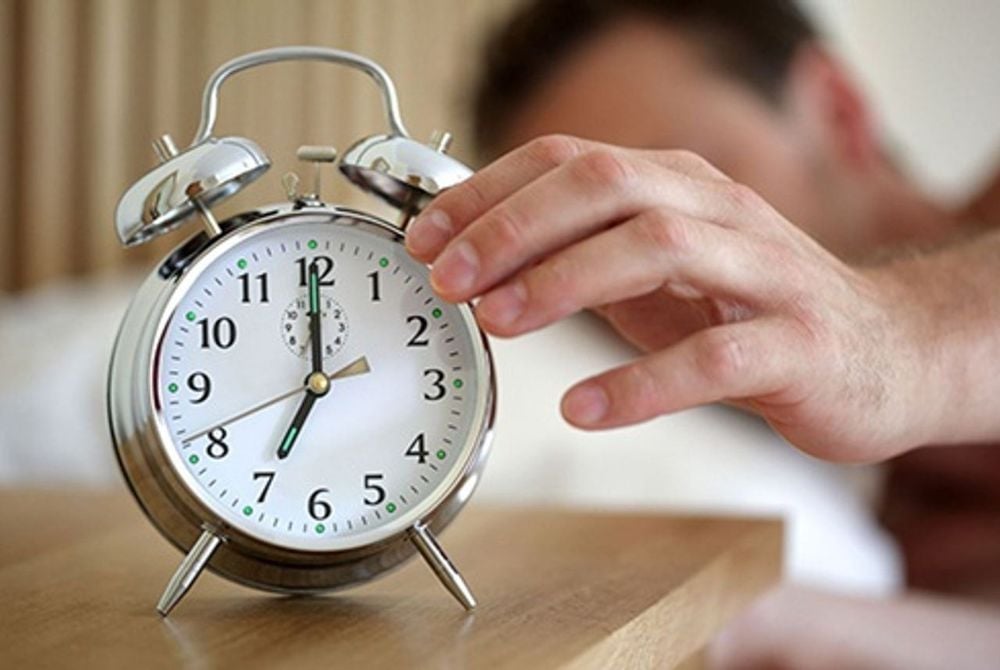This is an automatically translated article.
Waking up early is the secret of many successful people. From athletes to doctors, high-performance people all recommend waking up early because it gives you a fresh start to the day, as well as more time to get things done from home. home and workplace.
1. Benefits of getting up early
1.1. Improves Cognitive Function Early risers tend to be better focused, more alert and energetic throughout the day.
There are many links between waking up early and being successful, a 2010 study found that people who work in the morning are more proactive and goal-oriented, have good problem-solving skills and study well in school, will eventually get into good universities and get high paying jobs.
A 2008 study found that college students who called themselves “early risers” had higher overall scores than those who stayed up late. Poor sleep has been linked to poorer cognitive performance, including poor memory, difficulty concentrating, and mood swings.
1.2. Better sleep quality Getting enough sleep improves blood pressure, immune system, basic brain functions, mood, and gives your body time to heal itself. Waking up early makes it easier to go to bed earlier, and keeping your sleep and wake times consistent will regulate your circadian rhythms and lead to deeper sleep at night.
People with consistent sleep schedules are less tired during the day. On the other hand, people who stay up late and wake up late are more likely to suffer from sleep disturbances and are often tired.
The benefits of quality sleep include:
Improves mood Better concentration Reduces risk of obesity and other chronic diseases On the other hand, poor quality sleep can:
Weaken the immune system Weakness Risk of high blood pressure, heart disease and diabetes Decreased sex drive 1.3. More time for breakfast If you wake up late and have to rush out the door, you are more likely to rush into a fast and unhealthy snack or skip breakfast altogether. The late sleepers and late risers ate 248 more calories per day, but ate only half the recommended amount of fruit and vegetables, and twice as many soft drinks and fast food as those who slept late. and get up early.
When you wake up early, you have time to prepare a full and healthy breakfast. By being full from the first meal, you're more likely to make healthier snacking choices later in the day, helping to reduce your risk of weight gain and obesity.

Dậy sớm có tốt không? - Có, dậy sớm giúp bạn có thêm thời gian để ăn sáng
1.4. Morning exercise time For busy people, early morning may be the only time to exercise. After long days of studying or working, it's not easy to make time to hit the gym and you may feel unmotivated.
Exercising in the morning, when you feel most energetic, is not only starting your day with a blessed excitement but is also important for your physical and mental health. Exercise lowers your risk of heart disease, improves mood, regulates blood sugar, controls weight, improves cognitive function, and many other benefits.
Keep a water bottle, shoes or exercise mat by your bed so you can get out of bed and start your exercise routine. Keep it simple and easy so you can do it every day. Exercise with a friend or take a class to help you cultivate consistent habits.
1.5. Better mood and mental health Early risers have more positive thoughts than night owls. They are said to be optimistic, agreeable, dedicated and satisfied with life. Women who wake up early are also less likely to develop mental illnesses, such as depression or anxiety.
People who wake up early also often go to bed earlier. When you get the recommended 7 to 9 hours of sleep, your body and mind have enough time to repair themselves, leading to a healthier body and mind.
1.6. Reduce stress By waking up early, you can reduce stress and get things done without any extra time or pressure. No need to rush to places because the amount of traffic is less crowded, you can move freely and not be afraid of being late. Getting enough rest also improves your problem-solving abilities.
1.7. Increase Organization and Performance Many early risers make the most of their mornings by setting goals and planning for the day. Planning is associated with improved productivity when you have more time in your day to finish tasks early or try new things. It minimizes forgetfulness, especially if you have written down your daily plan.
Also, people tend to be awake in the morning and give you time to get things done without interruption.
1.8. Peaceful Morning Waking up early isn't just about being more productive. If you have kids or live with other people, you can use early mornings to enjoy some time to yourself and have a quiet, relaxing morning routine.
For those who work in the morning, you can skip the heavy commute to get to work and get there before rush hour by waking up a little earlier. Getting to work earlier also gives you time to get work done before someone else arrives and can potentially distract you.

Dậy sớm có tác dụng gì là thắc của nhiều người hiện nay
1.9. Healthier skin Long nights can leave marks on your skin with lines, wrinkles, paleness and swollen or drooping eyelids. Lack of sleep can also contribute to acne.
Good sleep keeps your skin healthy. While you sleep, your skin cells regenerate, while increasing blood flow and collagen helping to repair damage from the environment and UV rays.
Also, when you go to bed earlier, you have more time to do good skin care practices, such as washing your face. So don't be surprised if you wake up with a glowing face when you wake up early. Going to bed early also helps reduce dark circles, caused by fluid buildup under the eyes due to lack of sleep.
2. How to get up early?
There are many good effects of getting up early, but how to change the habit of sleeping in, please refer to the methods below to create good sleep habits and enjoy the benefits that lifestyle habits have. healthy living brings.
Becoming a natural early riser doesn't happen overnight and may be difficult at first, but you can train your body and mind to make waking up easier. With the benefits of getting up early, here are some ways to start waking up early.
2.1. Build a bedtime schedule A consistent sleep schedule improves your circadian rhythm timing and, eventually, you'll feel tired and wake up at the same time every day. Set a sleep schedule so you can get 7 to 9 hours of sleep each night.
2.2. Sleep Hygiene Sleep hygiene refers to healthy habits and practices that facilitate sleep. Some ways you can promote good sleep hygiene include:
Cool, dark and quiet bedroom Limit electrical appliances at night Avoid heavy meals before bed Follow a relaxation routine before go to bed Avoid vigorous exercise at night Eat whole grains and drink filtered water during the day Limit blue light electronic device use 60 minutes before bedtime By improving your sleep hygiene, It's easier to get quality sleep and wake up in the morning too.
2.3. Keep your alarm clock away from your bed If your alarm is by your bed, you can easily hit snooze until you realize you've gone to bed for an extra two hours. Putting it away from your bed—on a dresser or bookshelf on the other side of the room—forces you to get up to turn it off. After waking up, there's no reason to go back to bed, so you can start your morning off easier.

Bạn hãy để đồng hồ báo thức ra xa giúp dậy sớm đúng giờ và dậy sớm không mệt
2.4. Get out of bed immediately As soon as you wake up, get out of bed and start your day. While it's hard, staying in bed after waking just makes it harder to wake up and you could accidentally fall back asleep.
2.5. Be kind to yourself You might not like being an early riser after just a few days, especially if you're used to staying up late and sleeping in. Don't embarrass yourself if you fall asleep and wake up later than expected. It's okay to sleep in from time to time, as long as it doesn't become too much of a habit. If you're too strict about waking up early, even if you don't feel well or exhausted, you may resent getting up early and find more reasons to avoid it.
Please dial HOTLINE for more information or register for an appointment HERE. Download MyVinmec app to make appointments faster and to manage your bookings easily.
Reference source: eachnight.com












